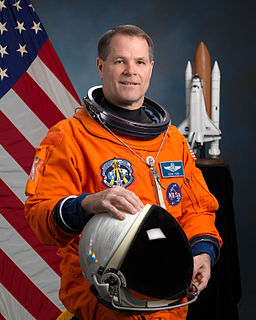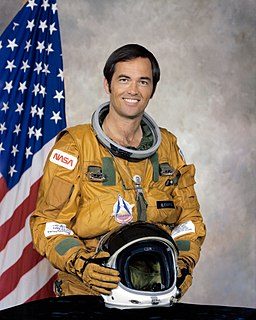A Quote by Stephen Hawking
A zero-gravity flight is a first step toward space travel.
Quote Topics
Related Quotes
The Americans are still the leaders in human space flight. I feel we have a danger here of kind of stagnating. We're kind of resting on our laurels and there's a danger going forward if we don't take bold steps to really support human space flight in this country that we could fall behind. After the space shuttle is retired, we're going to have a big gap, five to seven years, at least where we're not going to have the ability to send our own astronauts into space, we'll have to buy rides on the Russian Soyuz, and so that will be a pretty big step down for us.
The United States, Russia, and China are the only three countries in the world that can launch astronauts into space. Mostly in the U.S. you see some companies trying to launch private commercial people into space, but nobody's done it yet. The only private vehicle that's made it into space so far is Spaceship 1 in 2004, and that was an effort that was funded by one of the Microsoft founders, and he spent about $20 million to develop this spacecraft to do a sub-orbital flight. And it's not the same as going into orbit, but it was a huge first step.
Other anatomical changes associated with long-duration space flight are definitely negative: the immune system weakens, the heart shrinks because it doesn't have to strain against gravity, eyesight tends to degrade, sometimes markedly (no one's exactly sure why yet). The spine lengthens as the little sacs of fluid between the vertebrae expand, and bone mass decreases as the body sheds calcium. Without gravity, we don't need muscle and bone mass to support our own weight, which is what makes life in space so much fun but also so inherently bad for the human body, long-term.


































